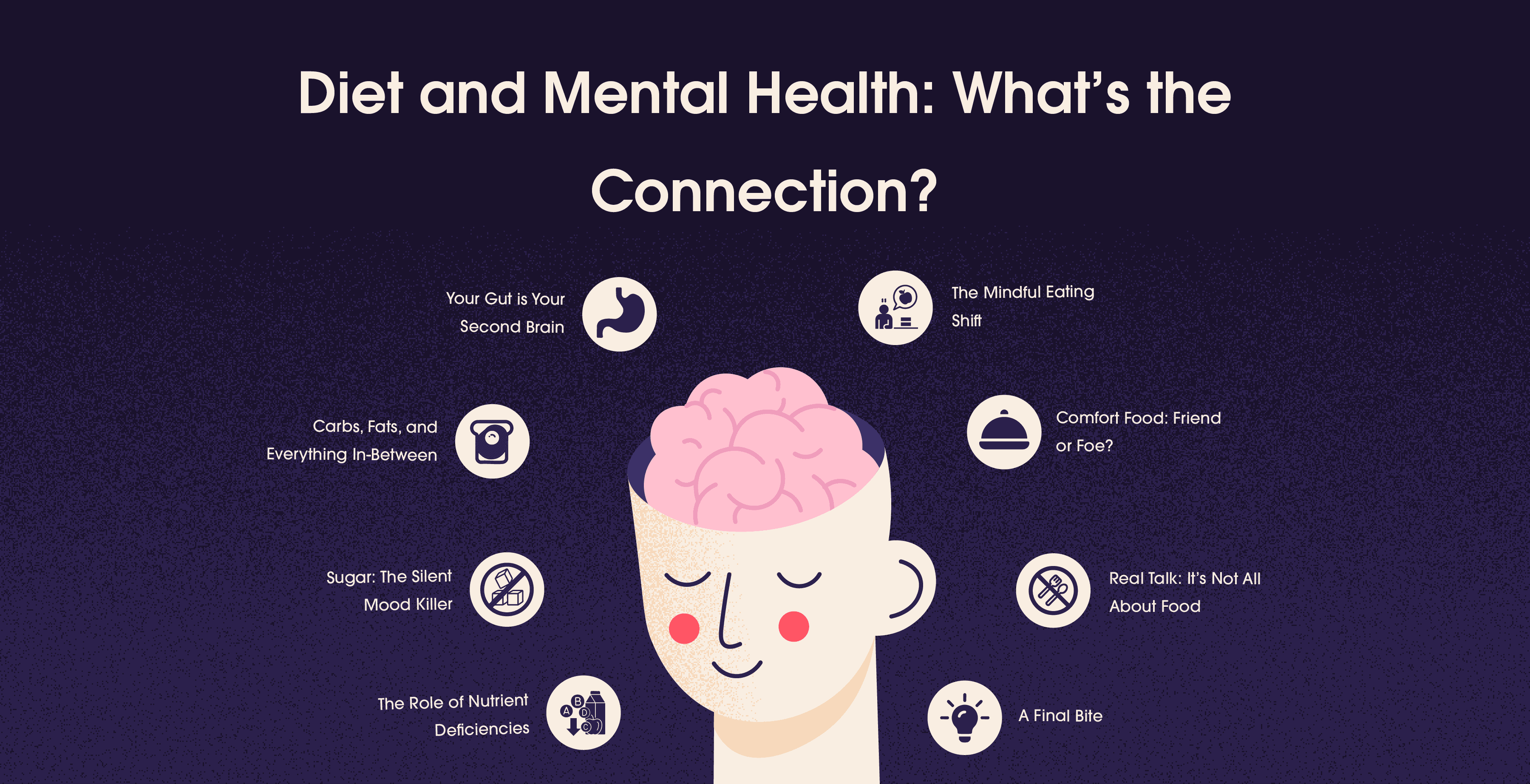Men’s Health Myths Busted: Fact vs. Fiction
Feb 19, 2025
Sayfali Rawlani
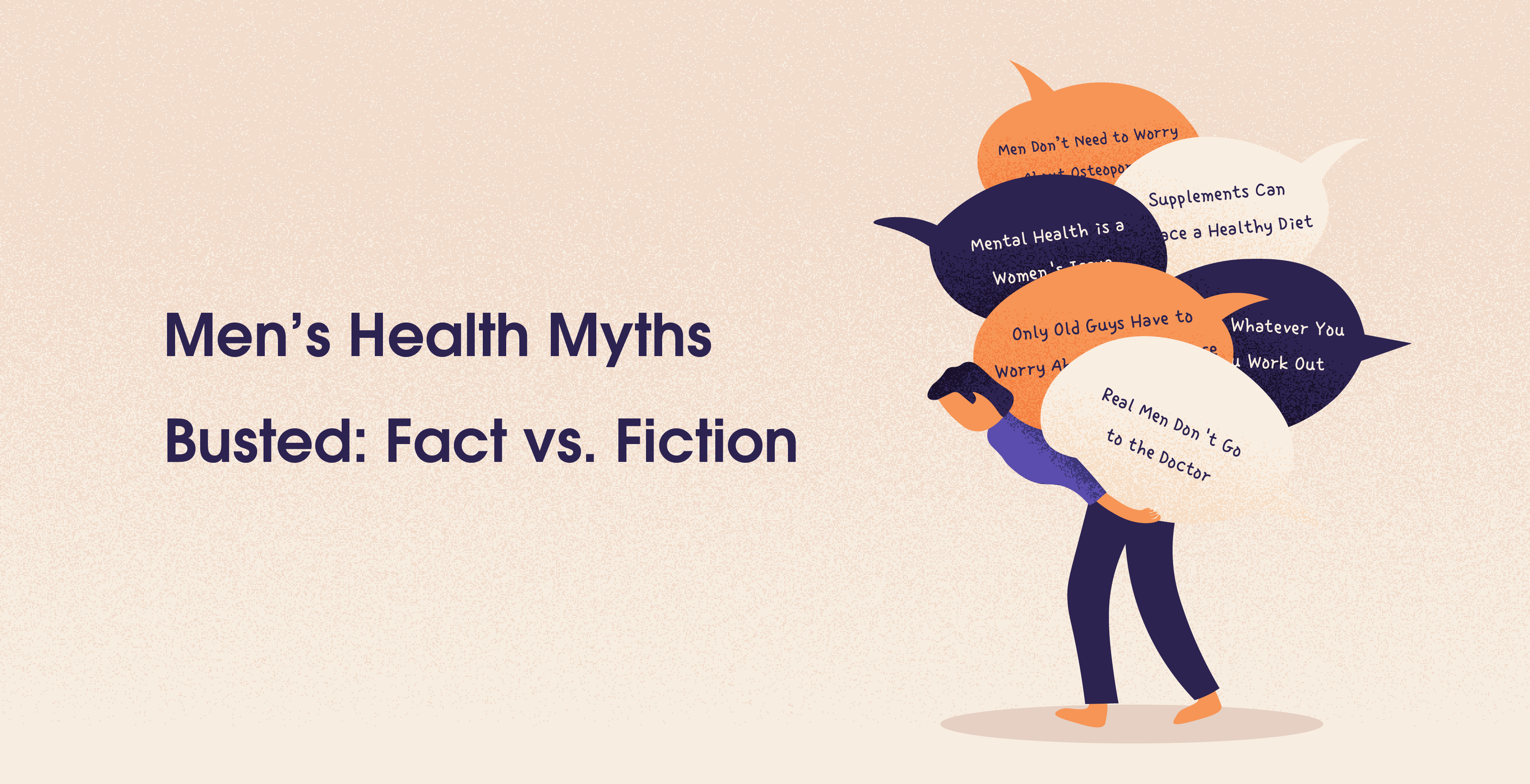


Table Of Contents
Alright, fellas, let’s set the record straight. Men’s health has been wrapped in myths for way too long—some passed down like family heirlooms, others fueled by outdated locker-room talk. But here’s the deal: believing in half-baked health “facts” can do more harm than good. So, let’s bust some of these myths wide open and get to the real story.
Highlights
Skipping doctor visits doesn’t make you tough—it just keeps you in the dark about potential health risks. Preventive care is key.
Testosterone boosters aren’t a magic fix for aging; natural strategies like strength training and sleep work better.
Men are also at risk for osteoporosis, and bone health needs attention with weight-bearing exercises and proper nutrition.
Exercise alone can’t undo a bad diet—what you eat has a massive impact on overall health and fitness.
Mental health struggles aren’t a weakness; seeking help is a sign of strength and intelligence.
Heart disease isn’t just an “old man’s problem”—bad habits in your 30s and 40s can set the stage early.
Snoring isn’t just annoying; it can be a warning sign for sleep apnea, which affects heart health and energy levels.
Misinformation leads to poor health choices—knowing the facts helps men take control of their well-being.
Myth Vs Facts Related To Men’s Health
Myth #1: "Real Men Don't Go to the Doctor"
Raise your hand if you’ve ever shrugged off a weird pain, a lingering cough, or a health concern because “it’s nothing.” Yeah, you’re not alone. A lot of men avoid checkups, thinking they should just “tough it out.” News flash: ignoring your body’s warning signs isn’t bravery—it’s a fast track to bigger health issues. Heart disease, diabetes, and even certain cancers don’t wait for you to feel “man enough” to book an appointment. Regular checkups aren’t about weakness; they’re about playing the long game for your health.
Myth #2: "Testosterone is the Ultimate Measure of Manhood"
Look, testosterone does play a role in energy, muscle mass, and overall well-being, but it’s not the be-all, end-all of masculinity. The idea that every man should have sky-high T-levels is nonsense. Hormones fluctuate, and while low testosterone can impact mood and energy, it’s not a solo villain. Lifestyle factors like diet, sleep, and stress levels have just as much influence. Instead of obsessing over T-boosting supplements (many of which are just snake oil), focus on real habits—lifting weights, getting solid sleep, and keeping stress in check.
Myth #3: "You Can Eat Whatever You Want if You Work Out"
Sorry, but smashing a burger and fries after hitting the gym isn’t the flex you think it is. Sure, exercise burns calories, but nutrition isn’t just about weight—it’s about fueling your body properly. A steady diet of processed junk and greasy takeout won’t do your heart, metabolism, or energy levels any favors, no matter how many reps you put in. Want peak performance? Treat your food like fuel, not a free-for-all.
Myth #4: "Mental Health is a Women's Issue"
Let’s cut to the chase: mental health struggles don’t check your gender before knocking on your door. Anxiety, depression, stress overload—these hit men just as hard as women, but the difference? Society hasn’t exactly made it easy for guys to talk about it. Bottling it up or drowning it in distractions won’t fix the problem. Therapy, mindfulness, talking to a trusted friend—it’s not about being “soft.” It’s about being smart. Your brain is part of your body, and taking care of it should be as normal as hitting the gym.
Myth #5: "Only Old Guys Have to Worry About Heart Disease"
If you think heart disease is an "old man's problem," think again. The seeds of cardiovascular trouble—high blood pressure, high cholesterol, and inflammation—start way earlier than most guys realize. The truth? The way you eat, move, and handle stress in your 20s and 30s sets the tone for your 50s and beyond. So, unless you want to be blindsided later, start paying attention now. Cut back on the ultra-processed food, move your body regularly, and get those blood pressure and cholesterol levels checked. Your future self will thank you.
Myth #6: "Men Don’t Need to Worry About Osteoporosis"
Bone health—it’s not just a women’s issue. While osteoporosis is more common in women, men aren’t off the hook. In fact, by the time guys hit their 50s and 60s, bone density loss starts creeping in. The best defense? Strength training, vitamin D, and a calcium-rich diet. Skipping these can mean fractures, back pain, and a whole lot of avoidable problems later on. So, next time someone tells you that strong bones are only a woman's concern, hit them with the facts.
Myth #7: "Supplements Can Replace a Healthy Diet"
It’s easy to fall for the promise of a quick fix—pop a pill, skip the effort. But let’s be real: no supplement can fully replace the nutrients from whole foods. Multivitamins can help if you have gaps in your diet, but they’re not a magic bullet. Real health starts with real food—leafy greens, nuts, lean proteins, and healthy fats. Think of supplements as backup singers, not the main act.
Take Control of Your Health
The biggest myth of all? That taking care of yourself is optional. Health isn’t something you “get around to” once you hit a certain age—it’s a lifelong project. The good news? Small, consistent choices make all the difference. Move your body, eat well, check in on your mental health, and see a doctor before things get serious.
trst health believes in cutting through the noise and giving you the facts that actually matter. No fluff, no myths—just real, practical ways to take control of your health. Because at the end of the day, being strong starts with being informed.
So, ditch the myths and start making choices that set you up for a healthier, stronger future. Your body (and your future self) will thank you.
References
Alright, fellas, let’s set the record straight. Men’s health has been wrapped in myths for way too long—some passed down like family heirlooms, others fueled by outdated locker-room talk. But here’s the deal: believing in half-baked health “facts” can do more harm than good. So, let’s bust some of these myths wide open and get to the real story.
Highlights
Skipping doctor visits doesn’t make you tough—it just keeps you in the dark about potential health risks. Preventive care is key.
Testosterone boosters aren’t a magic fix for aging; natural strategies like strength training and sleep work better.
Men are also at risk for osteoporosis, and bone health needs attention with weight-bearing exercises and proper nutrition.
Exercise alone can’t undo a bad diet—what you eat has a massive impact on overall health and fitness.
Mental health struggles aren’t a weakness; seeking help is a sign of strength and intelligence.
Heart disease isn’t just an “old man’s problem”—bad habits in your 30s and 40s can set the stage early.
Snoring isn’t just annoying; it can be a warning sign for sleep apnea, which affects heart health and energy levels.
Misinformation leads to poor health choices—knowing the facts helps men take control of their well-being.
Myth Vs Facts Related To Men’s Health
Myth #1: "Real Men Don't Go to the Doctor"
Raise your hand if you’ve ever shrugged off a weird pain, a lingering cough, or a health concern because “it’s nothing.” Yeah, you’re not alone. A lot of men avoid checkups, thinking they should just “tough it out.” News flash: ignoring your body’s warning signs isn’t bravery—it’s a fast track to bigger health issues. Heart disease, diabetes, and even certain cancers don’t wait for you to feel “man enough” to book an appointment. Regular checkups aren’t about weakness; they’re about playing the long game for your health.
Myth #2: "Testosterone is the Ultimate Measure of Manhood"
Look, testosterone does play a role in energy, muscle mass, and overall well-being, but it’s not the be-all, end-all of masculinity. The idea that every man should have sky-high T-levels is nonsense. Hormones fluctuate, and while low testosterone can impact mood and energy, it’s not a solo villain. Lifestyle factors like diet, sleep, and stress levels have just as much influence. Instead of obsessing over T-boosting supplements (many of which are just snake oil), focus on real habits—lifting weights, getting solid sleep, and keeping stress in check.
Myth #3: "You Can Eat Whatever You Want if You Work Out"
Sorry, but smashing a burger and fries after hitting the gym isn’t the flex you think it is. Sure, exercise burns calories, but nutrition isn’t just about weight—it’s about fueling your body properly. A steady diet of processed junk and greasy takeout won’t do your heart, metabolism, or energy levels any favors, no matter how many reps you put in. Want peak performance? Treat your food like fuel, not a free-for-all.
Myth #4: "Mental Health is a Women's Issue"
Let’s cut to the chase: mental health struggles don’t check your gender before knocking on your door. Anxiety, depression, stress overload—these hit men just as hard as women, but the difference? Society hasn’t exactly made it easy for guys to talk about it. Bottling it up or drowning it in distractions won’t fix the problem. Therapy, mindfulness, talking to a trusted friend—it’s not about being “soft.” It’s about being smart. Your brain is part of your body, and taking care of it should be as normal as hitting the gym.
Myth #5: "Only Old Guys Have to Worry About Heart Disease"
If you think heart disease is an "old man's problem," think again. The seeds of cardiovascular trouble—high blood pressure, high cholesterol, and inflammation—start way earlier than most guys realize. The truth? The way you eat, move, and handle stress in your 20s and 30s sets the tone for your 50s and beyond. So, unless you want to be blindsided later, start paying attention now. Cut back on the ultra-processed food, move your body regularly, and get those blood pressure and cholesterol levels checked. Your future self will thank you.
Myth #6: "Men Don’t Need to Worry About Osteoporosis"
Bone health—it’s not just a women’s issue. While osteoporosis is more common in women, men aren’t off the hook. In fact, by the time guys hit their 50s and 60s, bone density loss starts creeping in. The best defense? Strength training, vitamin D, and a calcium-rich diet. Skipping these can mean fractures, back pain, and a whole lot of avoidable problems later on. So, next time someone tells you that strong bones are only a woman's concern, hit them with the facts.
Myth #7: "Supplements Can Replace a Healthy Diet"
It’s easy to fall for the promise of a quick fix—pop a pill, skip the effort. But let’s be real: no supplement can fully replace the nutrients from whole foods. Multivitamins can help if you have gaps in your diet, but they’re not a magic bullet. Real health starts with real food—leafy greens, nuts, lean proteins, and healthy fats. Think of supplements as backup singers, not the main act.
Take Control of Your Health
The biggest myth of all? That taking care of yourself is optional. Health isn’t something you “get around to” once you hit a certain age—it’s a lifelong project. The good news? Small, consistent choices make all the difference. Move your body, eat well, check in on your mental health, and see a doctor before things get serious.
trst health believes in cutting through the noise and giving you the facts that actually matter. No fluff, no myths—just real, practical ways to take control of your health. Because at the end of the day, being strong starts with being informed.
So, ditch the myths and start making choices that set you up for a healthier, stronger future. Your body (and your future self) will thank you.
References
Table Of Contents
Table Of Contents
Table Of Contents
Read More
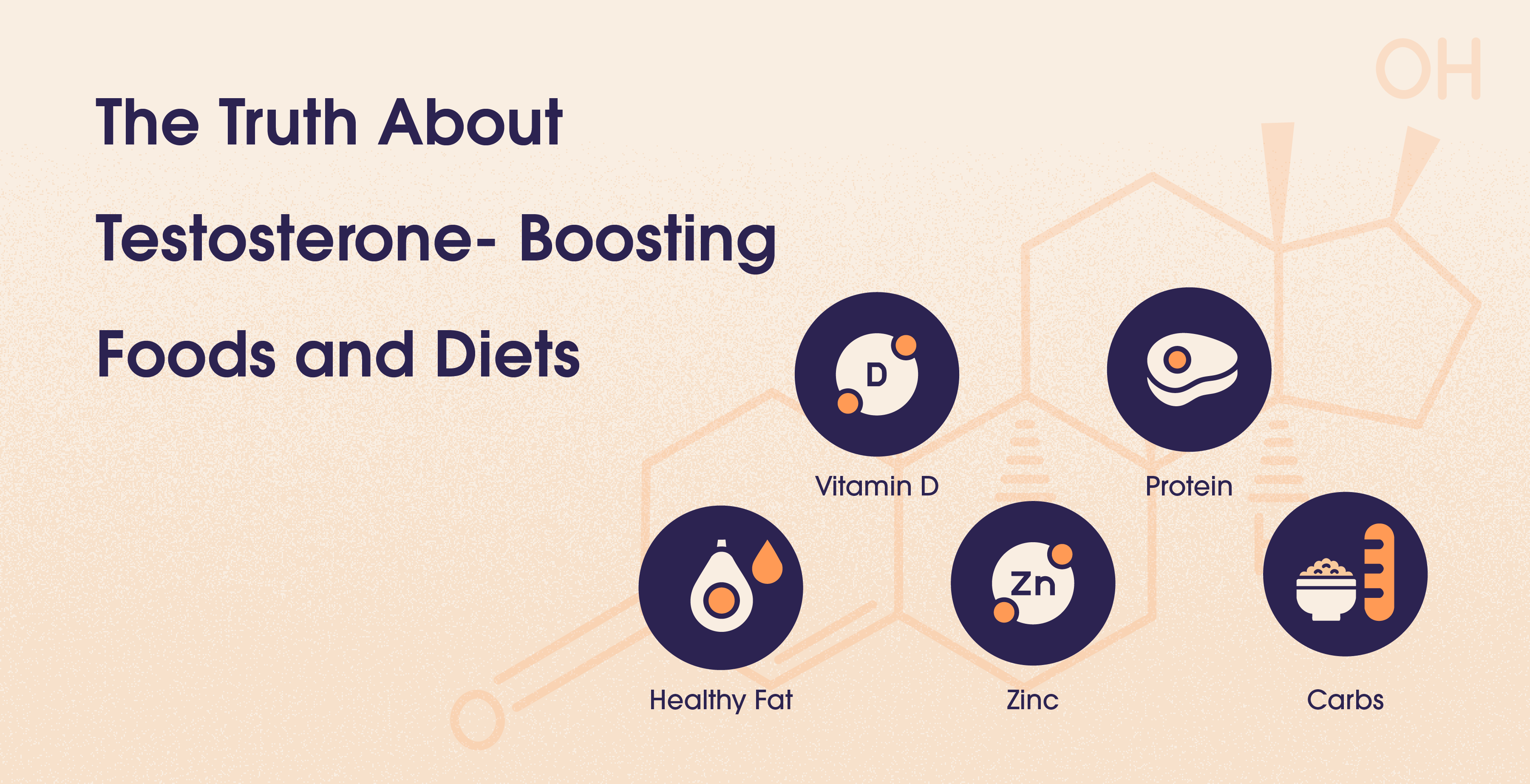

Mar 13, 2025
Sayfali Rawlani
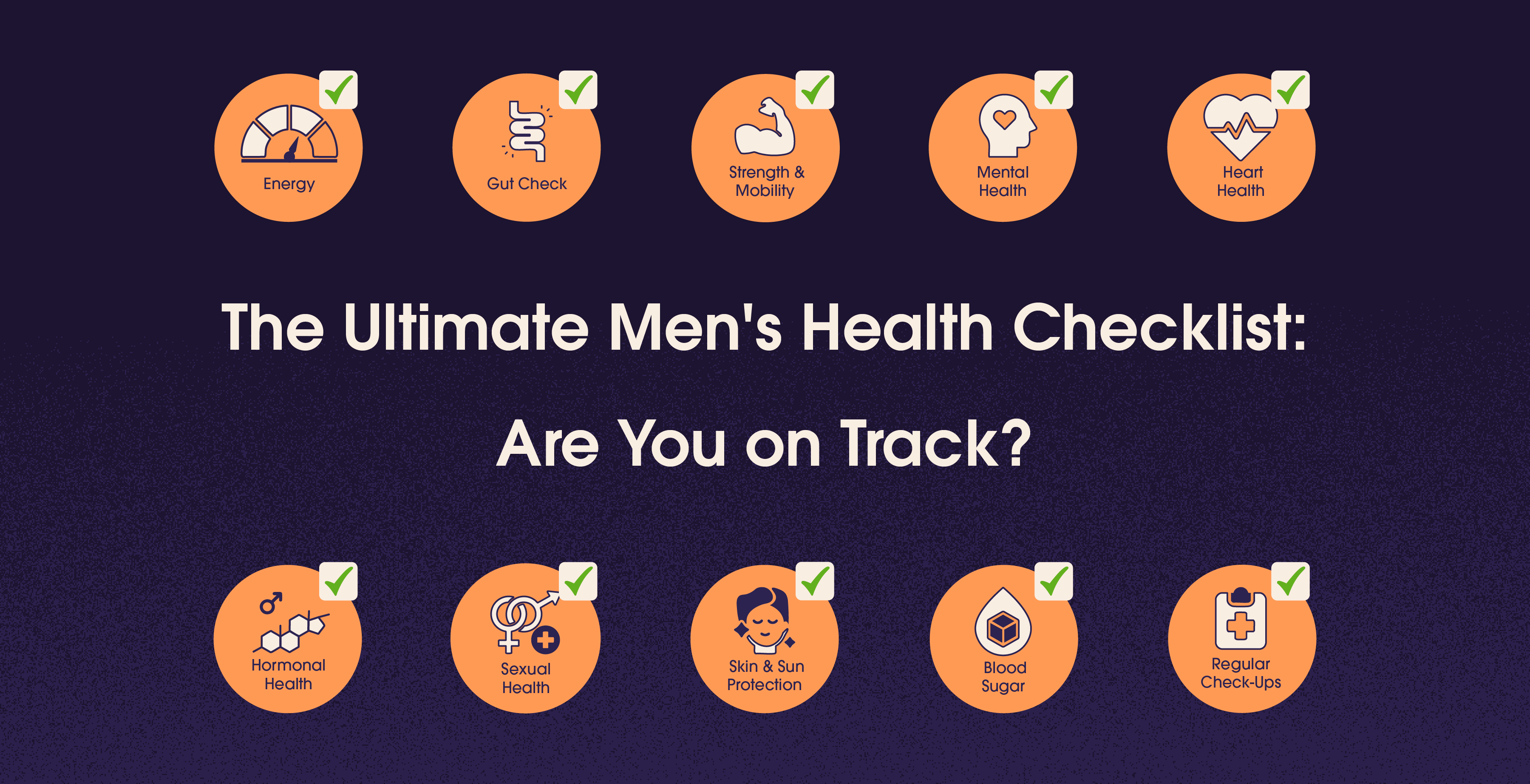

Feb 25, 2025
Sayfali Rawlani
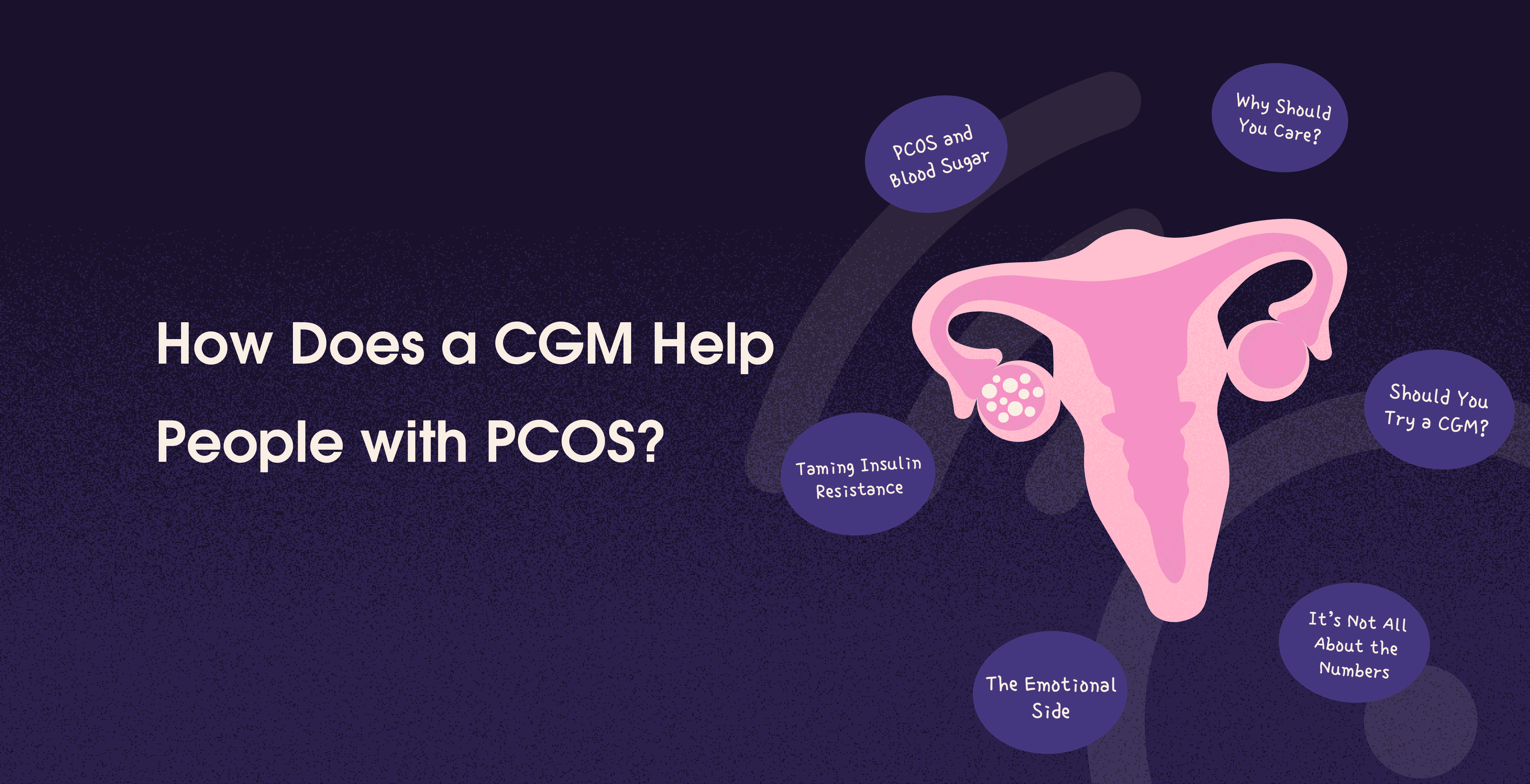

Oct 21, 2024
Sayfali Rawlani



Company
Copyright © 2025 trst health. All right reserved.

